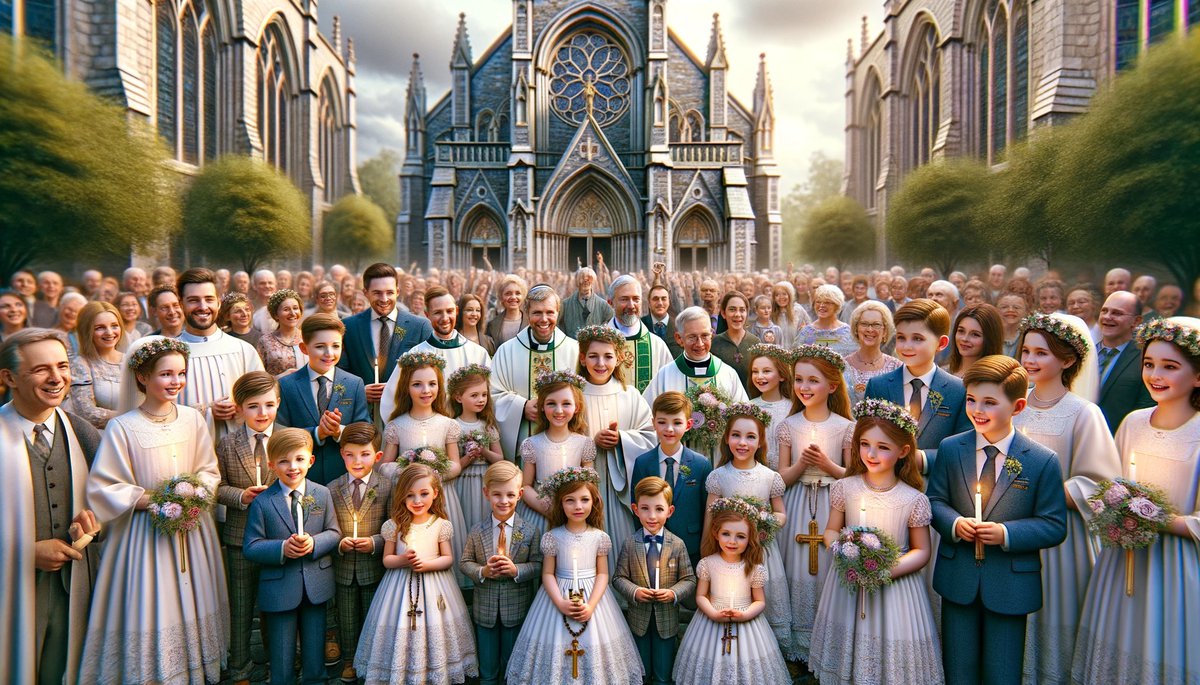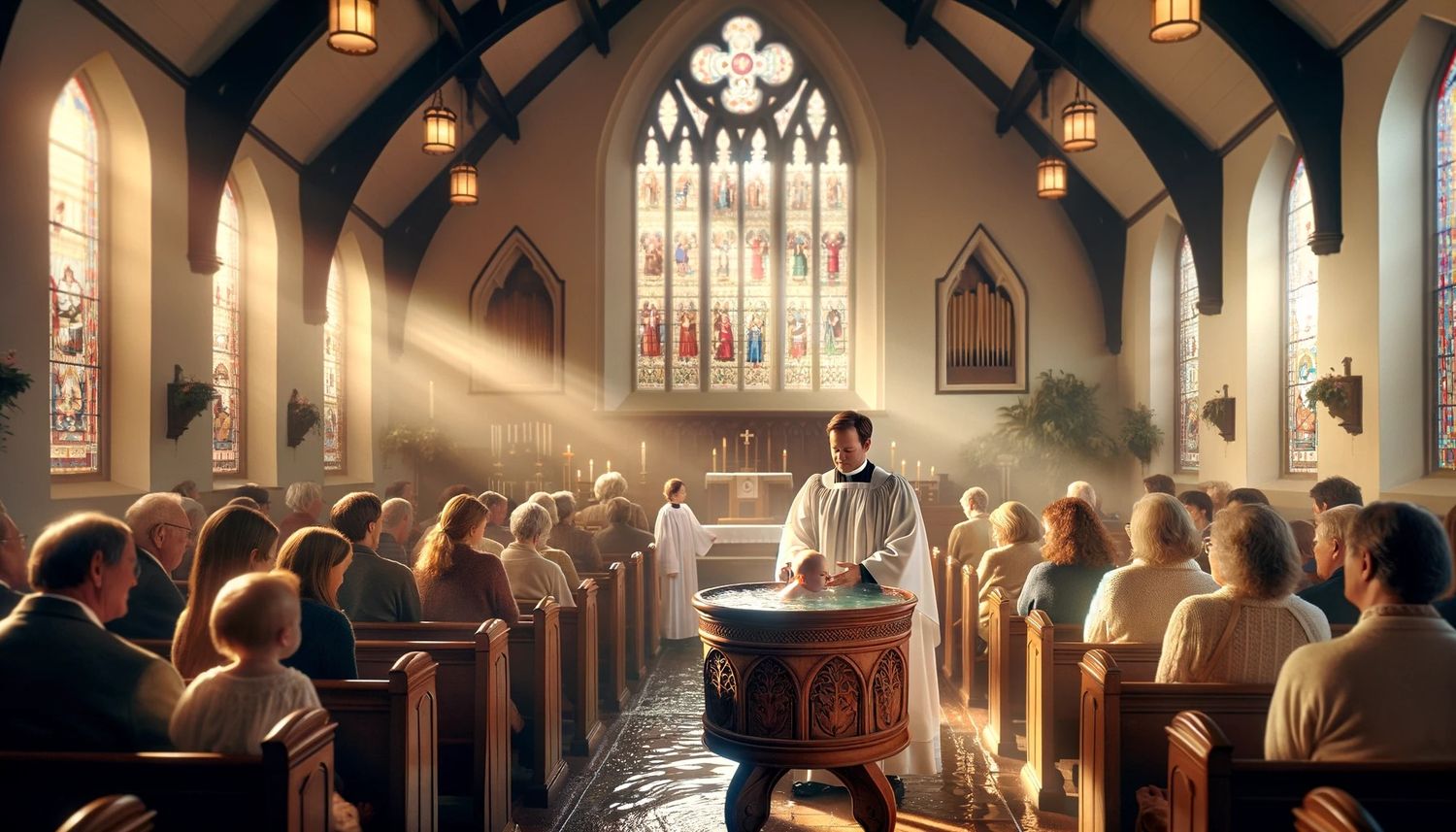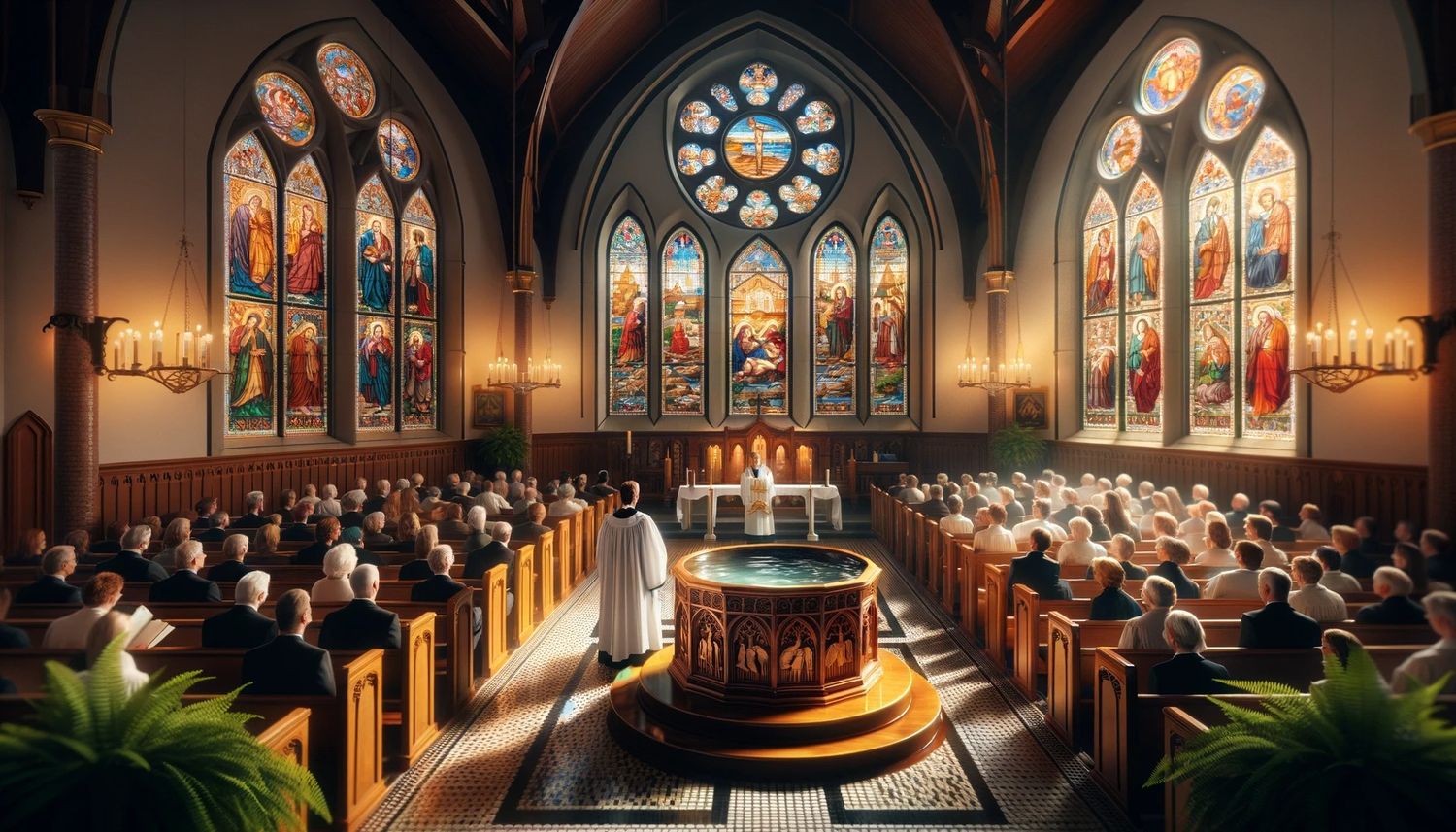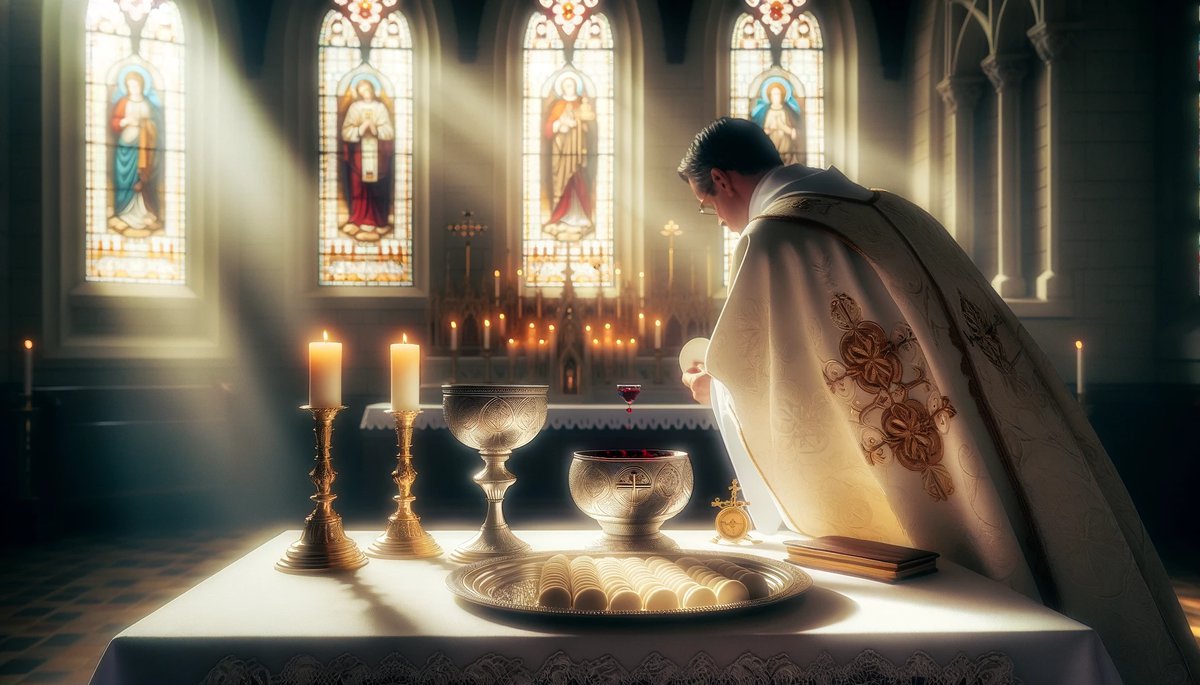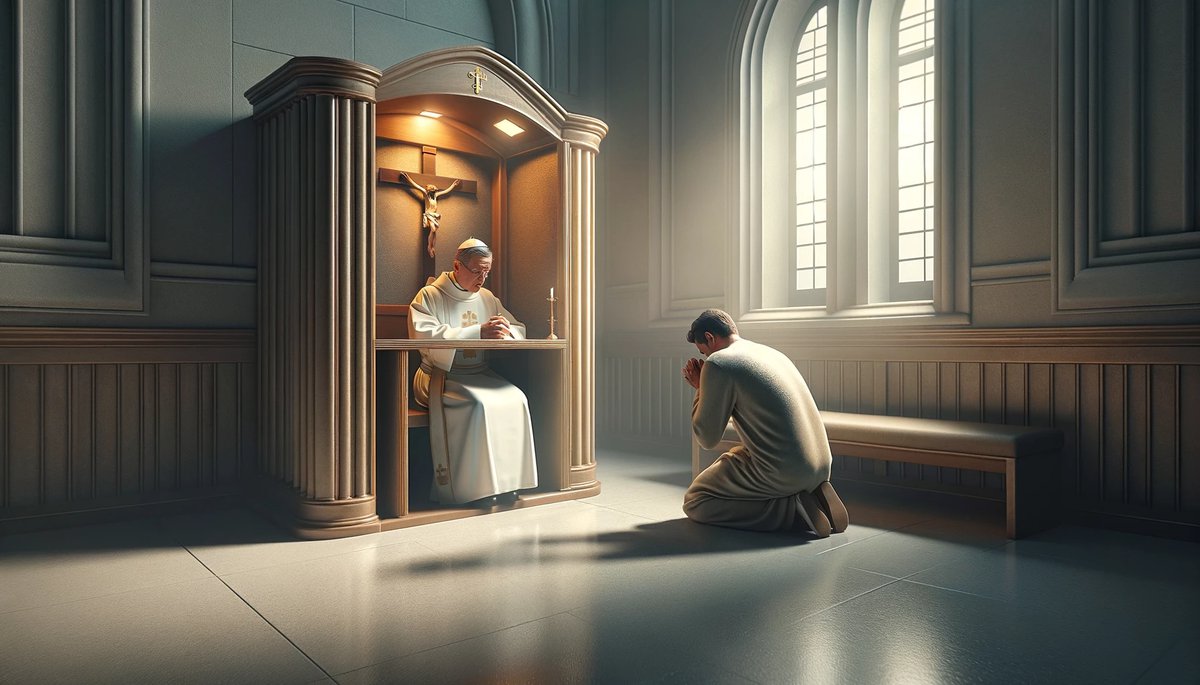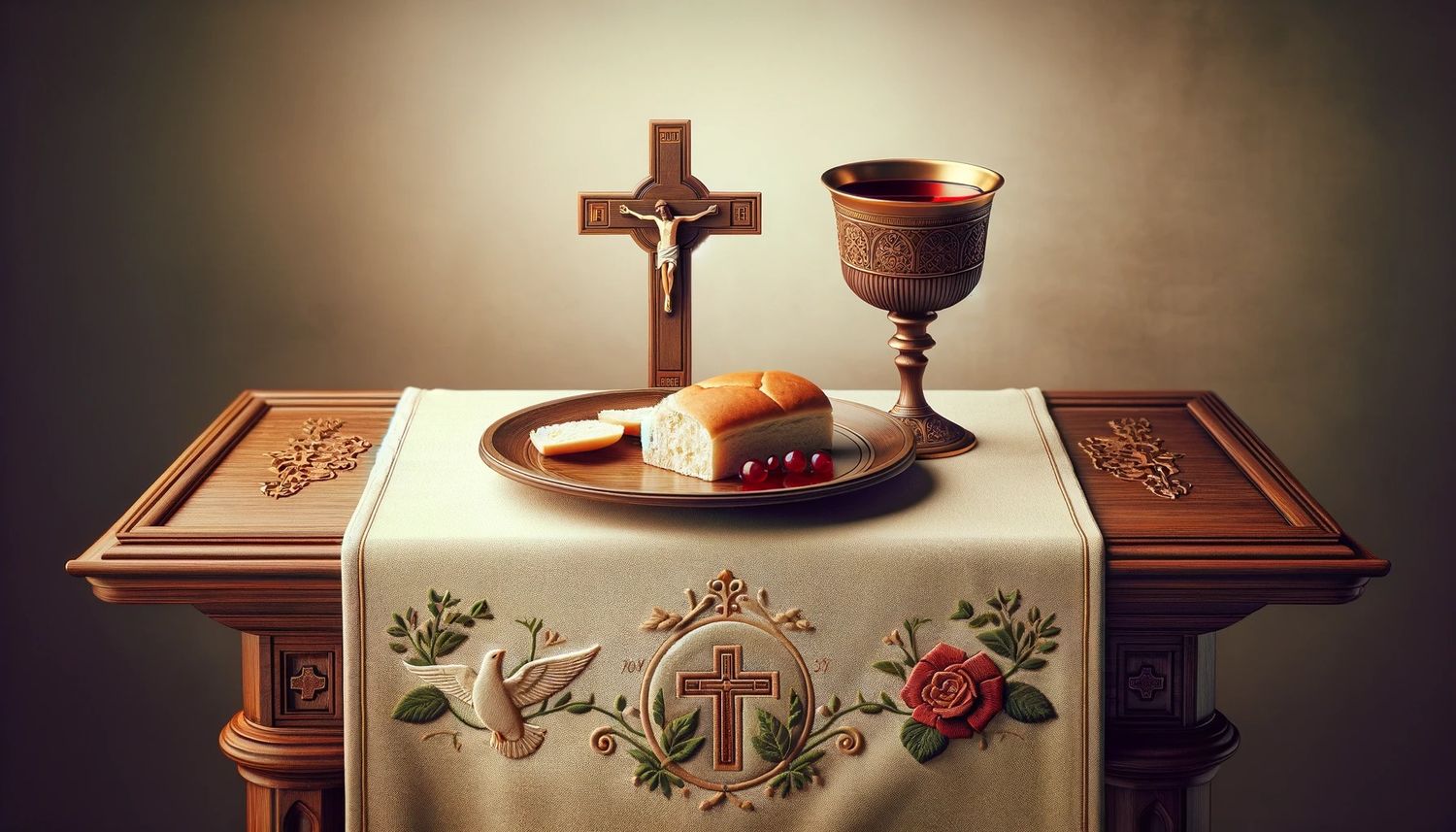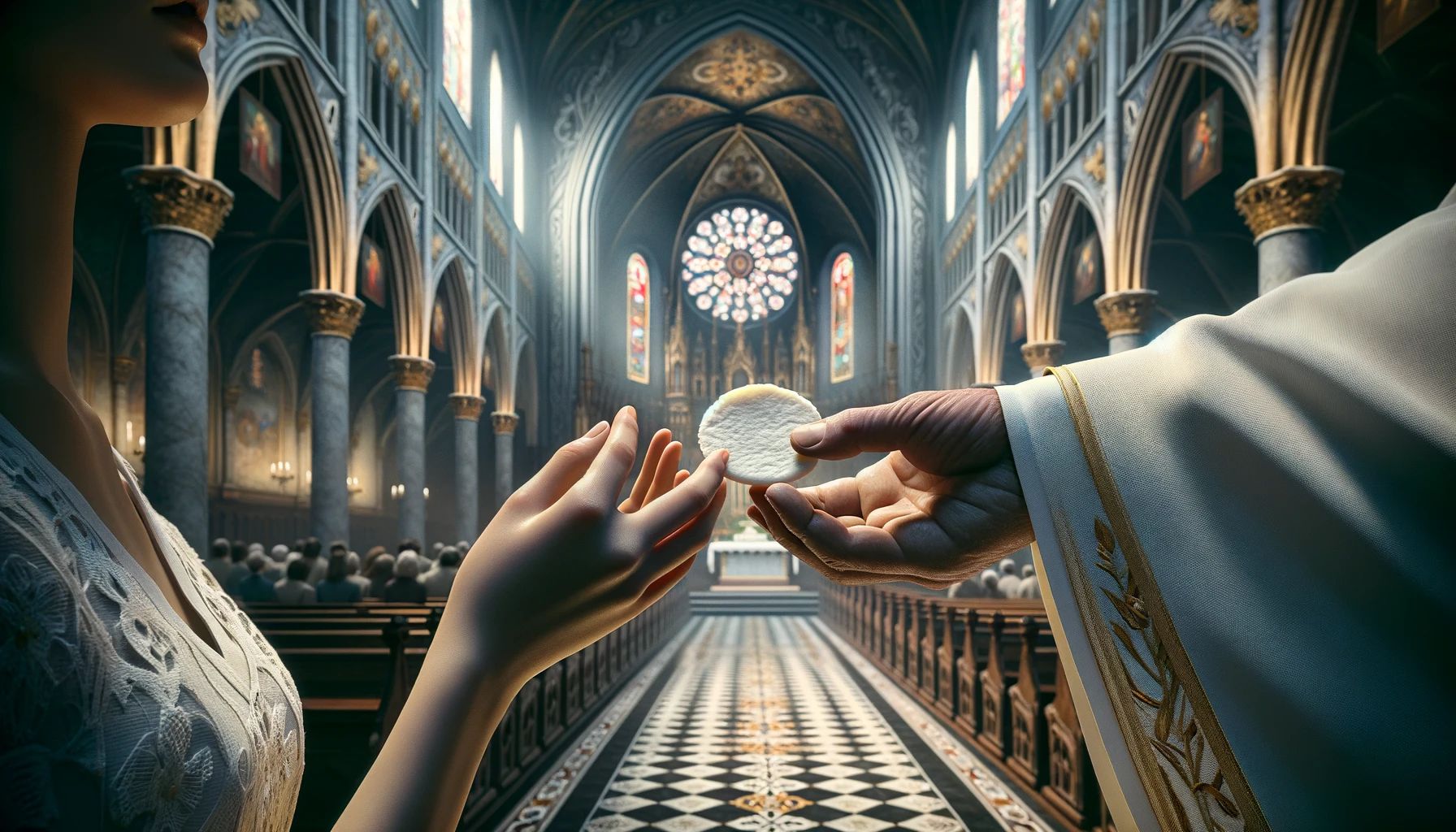Home>Theology and Spirituality>What Do Roman Catholics Believe About Holy Communion


Theology and Spirituality
What Do Roman Catholics Believe About Holy Communion
Published: February 24, 2024
Ericka Andersen, an editor at Christian.net, expertly merges digital strategy with content creation, focusing on faith and societal issues. Her communication skills enhance the platform's engaging narratives, fostering meaningful dialogue on belief's impact on society.
Discover what Roman Catholics believe about Holy Communion and its significance in theology and spirituality. Explore the teachings and practices of the Catholic Church.
(Many of the links in this article redirect to a specific reviewed product. Your purchase of these products through affiliate links helps to generate commission for Christian.net, at no extra cost. Learn more)
Table of Contents
Introduction
Holy Communion, also known as the Eucharist, holds profound significance within the Roman Catholic faith. It is a sacred sacrament that symbolizes the spiritual nourishment and unity of believers with Christ. The beliefs and practices surrounding Holy Communion are deeply rooted in the rich traditions and theological teachings of the Catholic Church.
The Eucharist serves as a focal point of worship and spiritual communion for Catholics around the world. It is a solemn and revered ritual that commemorates the Last Supper, where Jesus instituted the sacrament by offering bread and wine to his disciples, declaring, "This is my body" and "This is my blood." This pivotal moment in Christian history forms the basis of the Catholic understanding of Holy Communion.
The significance of the Eucharist extends beyond a mere symbolic representation. For Catholics, it embodies the real presence of Christ in the consecrated elements of bread and wine. This belief in the transformative power of the Eucharist is central to the faith and is intricately woven into the fabric of Catholic theology and spirituality.
As we delve into the depths of Roman Catholic beliefs about Holy Communion, we will explore the profound theological concepts of transubstantiation, the real presence of Christ, and the sacrificial nature of the Mass. Additionally, we will examine the reverent manner in which Catholics receive Holy Communion, underscoring the spiritual reverence and devotion that permeate this sacred sacrament.
The Eucharist stands as a cornerstone of Catholic worship, embodying the spiritual nourishment and unity of believers with Christ. It is a testament to the enduring presence of Jesus in the lives of the faithful and serves as a source of profound spiritual sustenance and communion within the Catholic tradition.
The Eucharist as the Body and Blood of Christ
At the heart of Roman Catholic belief lies the profound understanding of the Eucharist as the literal body and blood of Christ. This foundational concept is rooted in the teachings of Jesus Christ himself, as recorded in the Gospels. During the Last Supper, a moment of immense significance in Christian theology, Jesus took bread, blessed it, and gave it to his disciples, saying, "Take, eat; this is my body." He then took the cup, gave thanks, and offered it to them, declaring, "Drink from it, all of you; for this is my blood of the covenant, which is poured out for many for the forgiveness of sins."
For Catholics, these words hold profound significance, as they believe in the real presence of Christ in the consecrated elements of bread and wine. This belief is not merely symbolic; rather, it is a testament to the transformative power of the Eucharist. Through the sacred act of consecration during the Mass, the bread and wine become the body and blood of Christ while retaining the appearance of bread and wine. This mystical transformation, known as transubstantiation, is a cornerstone of Catholic Eucharistic theology.
The Eucharist, therefore, is not a mere memorial or symbolic representation of Christ's sacrifice, but a tangible and spiritual encounter with the living Christ. It is a profound mystery that transcends human understanding and invites believers to partake in the very essence of Christ's redemptive sacrifice. This understanding underscores the centrality of the Eucharist in Catholic worship and spirituality, as it serves as a source of spiritual nourishment, unity, and communion with the divine.
The Eucharist as the body and blood of Christ is a testament to the enduring presence of Jesus among his followers. It is a sacred encounter that transcends time and space, inviting believers to partake in the eternal banquet of the Lord. This profound belief shapes the reverence and devotion with which Catholics approach the Eucharist, recognizing it as the pinnacle of spiritual sustenance and communion with the divine.
In essence, the Eucharist stands as a tangible expression of God's love and presence in the life of every believer, embodying the transformative power of Christ's sacrifice and the promise of eternal life.
Transubstantiation
Transubstantiation is a profound and central theological concept within the Roman Catholic understanding of the Eucharist. It encapsulates the belief in the mystical transformation of the bread and wine into the actual body and blood of Christ during the celebration of the Mass. This doctrine, deeply rooted in the teachings of the Church Fathers and formalized during the Council of Trent, holds immense significance in Catholic Eucharistic theology.
At the heart of transubstantiation lies the distinction between substance and accidents. According to Catholic doctrine, the substance of the bread and wine is transformed into the substance of Christ's body and blood, while the accidents, or outward appearances, of the bread and wine remain unchanged. This transformative process occurs through the sacred words of consecration spoken by the priest during the Mass, invoking the Holy Spirit to effect this profound change.
The term "transubstantiation" itself underscores the radical nature of this transformation. It signifies a change in substance, not merely a symbolic or metaphorical representation. Through this mystical process, the Eucharist ceases to be ordinary bread and wine and becomes the true body, blood, soul, and divinity of Christ. This understanding emphasizes the real presence of Christ in the Eucharist, inviting believers to encounter the living Christ in a tangible and transformative manner.
The doctrine of transubstantiation serves as a testament to the profound mystery and sacredness of the Eucharist. It underscores the belief that the Eucharist is not merely a symbolic memorial, but a genuine and miraculous encounter with the divine. This belief has been upheld and cherished throughout centuries of Catholic tradition, shaping the reverence and devotion with which the faithful approach the Eucharist.
In embracing the doctrine of transubstantiation, Catholics affirm their faith in the enduring presence of Christ in the Eucharist. It is a belief that transcends rational explanation and invites believers to approach the Eucharist with awe and reverence, recognizing it as the pinnacle of spiritual communion with the living Christ. Transubstantiation stands as a profound expression of the transformative power of the Eucharist, inviting believers to partake in the eternal mystery of Christ's redemptive sacrifice.
This doctrine, rooted in the rich tapestry of Catholic theology, serves as a cornerstone of Eucharistic devotion, inviting believers to encounter the living Christ in the sacred banquet of the Eucharist.
The Real Presence of Christ
The concept of the real presence of Christ in the Eucharist stands as a defining tenet of Roman Catholic faith and theology. At the core of this belief is the understanding that, through the sacrament of the Eucharist, the living Christ is truly and substantially present in the consecrated elements of bread and wine. This profound doctrine transcends mere symbolism, inviting believers to encounter the divine in a tangible and transformative manner.
Central to the Catholic understanding of the real presence is the conviction that, during the celebration of the Mass, the bread and wine become the actual body and blood of Christ while retaining the outward appearances of bread and wine. This mystical transformation, known as transubstantiation, underscores the profound nature of the real presence, affirming that the Eucharist is not a mere memorial, but a genuine encounter with the living Christ.
The real presence of Christ in the Eucharist is rooted in the words of Jesus himself, spoken during the Last Supper. When he took the bread and wine, declaring, "This is my body" and "This is my blood," he established the foundation for the Catholic belief in the Eucharist as the real presence of Christ. These words, imbued with profound significance, continue to resonate within the hearts of believers, shaping their understanding of the Eucharist as a sacred encounter with the living Christ.
This belief in the real presence extends beyond the confines of the physical elements of the Eucharist. It encompasses the spiritual reality of Christ's presence, inviting believers to partake in the eternal banquet of the Lord. Through the Eucharist, Catholics are united with Christ in a deeply intimate and transformative manner, nourishing their souls and strengthening their communion with the divine.
The real presence of Christ in the Eucharist permeates the fabric of Catholic worship and spirituality, shaping the reverence and devotion with which believers approach this sacred sacrament. It serves as a source of profound spiritual nourishment, unity, and communion with the living Christ, underscoring the enduring presence of Jesus among his followers.
In essence, the real presence of Christ in the Eucharist stands as a testament to the profound mystery and sacredness of this sacrament. It invites believers to embrace the transformative power of the Eucharist, recognizing it as a tangible expression of God's love and presence in their lives. This belief continues to inspire and sustain the faith of Catholics around the world, fostering a deep and abiding connection with the living Christ in the blessed sacrament of the Eucharist.
The Sacrifice of the Mass
The concept of the Sacrifice of the Mass holds profound significance within the Roman Catholic faith, serving as a central pillar of Eucharistic theology and spirituality. At the heart of this belief is the understanding that the celebration of the Mass is not merely a symbolic reenactment of the Last Supper, but a true and eternal sacrifice that re-presents the saving work of Christ on the cross.
Central to the Catholic understanding of the Sacrifice of the Mass is the recognition that, through the sacred liturgy, the once-for-all sacrifice of Christ on the cross is made present and efficacious in the here and now. This belief is rooted in the profound connection between the Last Supper and the crucifixion, where the offering of Christ's body and blood on the altar is intimately linked to his sacrificial death on Calvary.
In the Eucharistic celebration, the priest, acting in persona Christi, offers the unbloody sacrifice of the Mass, invoking the Holy Spirit to effect the mystical transformation of the bread and wine into the body and blood of Christ. This sacred offering, known as the Eucharistic sacrifice, transcends time and space, making present the redemptive sacrifice of Christ in a sacramental and unbloody manner.
The Sacrifice of the Mass is imbued with profound sacrificial imagery, echoing the language of atonement and redemption found in the New Testament. Through the Eucharistic sacrifice, Catholics believe that the merits of Christ's passion, death, and resurrection are made available to the faithful, offering spiritual nourishment, reconciliation, and healing to the entire Body of Christ.
This understanding of the Mass as a true sacrifice underscores the profound mystery and sacredness of the Eucharist. It invites believers to participate in the eternal sacrifice of Christ, uniting their own lives, prayers, and offerings with the perfect sacrifice of the Son to the Father. In doing so, Catholics are drawn into the very heart of Christ's redemptive work, experiencing the transformative power of his saving love and mercy.
The Sacrifice of the Mass stands as a testament to the enduring presence of Christ's sacrifice in the life of the Church. It is a sacred banquet where the faithful are invited to partake in the eternal mystery of Christ's redemptive love, finding spiritual sustenance, reconciliation, and communion with the living Christ. This belief continues to shape the reverence and devotion with which Catholics approach the Eucharist, recognizing it as the pinnacle of spiritual communion with the divine.
In essence, the Sacrifice of the Mass embodies the timeless and universal reality of Christ's redemptive sacrifice, inviting believers to enter into the eternal mystery of his saving work and to receive the abundant graces flowing from the altar of the Lord.
Reception of Holy Communion
The reception of Holy Communion is a sacred and deeply reverent moment within the Roman Catholic tradition. It represents the pinnacle of the Eucharistic celebration, where believers partake in the body and blood of Christ, uniting themselves with the living Christ in a profound and transformative manner.
Central to the reception of Holy Communion is the preparation and disposition of the faithful. Prior to approaching the altar to receive the Eucharist, Catholics engage in a period of prayerful reflection and self-examination. This introspective process allows individuals to prepare their hearts and minds to receive the sacrament worthily, acknowledging the sanctity of the moment and the real presence of Christ in the Eucharist.
As the faithful approach the altar, they do so with profound reverence and humility, recognizing the sacredness of the Eucharistic encounter. The act of receiving Holy Communion is marked by a deep sense of awe and devotion, as believers come forward to partake in the body and blood of Christ. This solemn gesture reflects the belief in the real presence of Christ in the consecrated elements and underscores the intimate communion between the believer and the divine.
The reception of Holy Communion is accompanied by profound rituals and gestures that convey the spiritual significance of the sacrament. As the communicant approaches the minister, typically a priest or deacon, they extend their hands in a gesture of openness and receptivity, signifying their desire to receive the Eucharist. The minister then offers the consecrated host, saying, "The body of Christ," to which the communicant responds, "Amen," affirming their belief in the real presence of Christ and their readiness to receive him into their hearts.
Upon receiving the consecrated host, the communicant consumes it reverently, acknowledging the transformative encounter with the living Christ. The act of consuming the Eucharist is accompanied by a profound sense of spiritual nourishment and unity with Christ, as believers partake in the very essence of Christ's redemptive sacrifice.
The reception of Holy Communion is not merely a personal or individualistic act; rather, it signifies the communal unity of the Body of Christ. As believers partake in the Eucharist, they are united with Christ and with one another, forming a spiritual bond that transcends individual identities and affiliations. This communal aspect of the Eucharist reflects the unity and diversity within the Church, as believers from diverse backgrounds come together to partake in the sacred banquet of the Lord.
In essence, the reception of Holy Communion embodies the profound spiritual communion between the believer and the living Christ. It is a sacred encounter that nourishes the soul, strengthens the bonds of unity within the Church, and sustains the faith of the faithful. This solemn and reverent act continues to be a source of profound spiritual nourishment and communion within the Catholic tradition, inviting believers to partake in the eternal banquet of the Lord with humility, reverence, and devotion.
Conclusion
In conclusion, the Roman Catholic beliefs about Holy Communion encapsulate profound theological truths that shape the spiritual identity and worship practices of the faithful. The Eucharist, as the body and blood of Christ, stands as a testament to the enduring presence of Jesus among his followers, inviting believers to partake in the eternal banquet of the Lord. The concept of transubstantiation underscores the mystical transformation of the bread and wine into the actual body and blood of Christ, affirming the real presence of Christ in the Eucharist. This belief transcends mere symbolism, inviting believers to encounter the living Christ in a tangible and transformative manner.
The doctrine of the real presence of Christ in the Eucharist permeates the fabric of Catholic worship and spirituality, shaping the reverence and devotion with which believers approach this sacred sacrament. It serves as a source of profound spiritual nourishment, unity, and communion with the living Christ, underscoring the enduring presence of Jesus among his followers. The Sacrifice of the Mass embodies the timeless and universal reality of Christ's redemptive sacrifice, inviting believers to enter into the eternal mystery of his saving work and to receive the abundant graces flowing from the altar of the Lord.
The reception of Holy Communion represents the pinnacle of the Eucharistic celebration, where believers partake in the body and blood of Christ, uniting themselves with the living Christ in a profound and transformative manner. This solemn and reverent act continues to be a source of profound spiritual nourishment and communion within the Catholic tradition, inviting believers to partake in the eternal banquet of the Lord with humility, reverence, and devotion.
In essence, the beliefs and practices surrounding Holy Communion within the Roman Catholic tradition reflect the profound mystery and sacredness of the Eucharist. They invite believers to embrace the transformative power of the Eucharist, recognizing it as a tangible expression of God's love and presence in their lives. The Eucharist serves as a focal point of worship and spiritual communion for Catholics around the world, embodying the spiritual nourishment and unity of believers with Christ. It is a testament to the enduring presence of Jesus in the lives of the faithful and serves as a source of profound spiritual sustenance and communion within the Catholic tradition.

